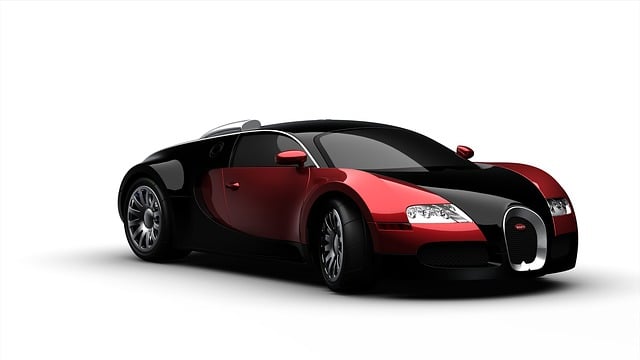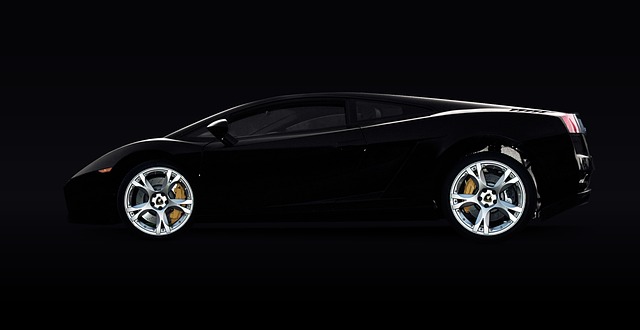Electric Revolution in Karachi: Trends, Challenges, and Global Insights
Karachi, Pakistan's financial center, leads global EV adoption efforts due to its diverse range…….

Karachi, Pakistan's financial center, leads global EV adoption efforts due to its diverse range of electric vehicles, government incentives, and increased awareness about climate change. Despite unique urban infrastructure challenges, the city is poised for success through collaborations, expanding charging networks, and consumer trends driven by environmental consciousness. Karachi serves as a model for sustainable transportation, aligning with Pakistan's green future goals and global EV trends seen in cities like Stockholm and Amsterdam.
The global shift towards electric vehicles (EVs) is transforming urban landscapes, with Karachi emerging as a bustling market for this sustainable transportation revolution. This article explores rising trends in EV adoption, delving into Karachi’s unique challenges and opportunities. We examine the environmental and economic benefits of EVs, analyze government initiatives promoting their use, and study public perception shaping the future of electric mobility in the city. Additionally, global case studies highlight successful EV integration strategies in comparable metropolitan cities worldwide.
- The Global Shift to Electric Vehicles: A Growing Market in Karachi
- Benefits of Adopting Electric Vehicles: Environmental and Economic Impact
- Challenges in EV Infrastructure Development in Karachi's Urban Landscape
- Government Initiatives and Incentives Promoting EV Adoption in Pakistan
- Public Perception and Consumer Trends Shaping the Future of EVs in Karachi
- Case Studies: Successful EV Integration in Similar Metropolitan Cities Worldwide
The Global Shift to Electric Vehicles: A Growing Market in Karachi

The global automotive industry is witnessing a significant shift towards electric vehicles (EVs), driven by environmental concerns and regulatory changes. This trend is particularly noticeable in urban areas, such as Karachi, where air pollution has become a pressing issue. Karachi, as Pakistan’s financial hub, is experiencing a surge in EV adoption, mirroring a worldwide movement. The city’s diverse range of EVs, from compact hatchbacks to luxury SUVs, caters to various consumer needs and budgets.
Karachi’s growing EV market is not just a trend but a step towards a sustainable future. Increased awareness about climate change and government incentives have encouraged residents to opt for electric mobility. Local dealerships and manufacturers are contributing by offering affordable options, ensuring that EVs become more accessible and desirable for the Karachiite population. This shift promises cleaner air and a quieter urban landscape while positioning Karachi as a forward-thinking city in global EV adoption.
Benefits of Adopting Electric Vehicles: Environmental and Economic Impact

Adopting electric vehicles (EVs) in Karachi, a bustling metropolis, offers a multitude of environmental and economic benefits. The primary advantage lies in reducing carbon emissions, which significantly contributes to mitigating climate change. EVs produce zero tailpipe emissions, thereby improving air quality and public health. In a city like Karachi, where traffic congestion is a pressing issue, transitioning to electric vehicles can help ease the load on roads and reduce fuel consumption.
Economically, while the initial cost of purchasing an EV might be higher, it translates into substantial savings over time. Lower operating costs compared to traditional gasoline-powered cars make EVs more affordable in the long run. Moreover, Karachi’s growing focus on sustainable energy solutions creates job opportunities and fosters a greener economy. This shift towards electrification supports Pakistan’s vision for a cleaner, more sustainable future.
Challenges in EV Infrastructure Development in Karachi's Urban Landscape

Karachi, as Pakistan’s economic powerhouse, faces unique challenges in adopting electric vehicles (EVs) due to its urban landscape and infrastructure. The rapid growth of the city has led to a dense network of roads, but this also presents difficulties in EV infrastructure development. Charging stations, for instance, need dedicated spaces, which are scarce in heavily congested areas.
The city’s complex traffic patterns and limited parking options create further obstacles. Additionally, Karachi’s tropical climate demands robust and efficient charging systems that can handle high temperatures without compromising performance or safety. Despite these challenges, the potential for EV adoption remains strong, as Karachi looks to future-proof its transportation network and reduce environmental impact.
Government Initiatives and Incentives Promoting EV Adoption in Pakistan

In Pakistan, particularly in bustling metropolitan areas like Karachi, government initiatives and incentives are playing a pivotal role in promoting electric vehicle (EV) adoption. The Pakistani government has recognized the environmental and economic benefits of transitioning to cleaner energy, leading to various schemes aimed at encouraging the use of electric cars. Tax breaks, reduced registration fees, and subsidies on EV purchases are some of the primary tools being utilized to make electric vehicles more accessible and affordable for citizens. These incentives have sparked a growing interest in EV ownership among Karachiites, who are witnessing the positive impact on air quality and potential long-term cost savings.
Additionally, local governments in Karachi have been actively collaborating with private sector partners to establish an extensive network of charging stations across the city. This infrastructure development addresses one of the primary concerns of EV buyers—range anxiety—by ensuring that drivers can conveniently charge their vehicles while on the go. Such supportive policies and investments are expected to further accelerate the adoption of electric vehicles in Karachi, positioning it as a leader in sustainable transportation in Pakistan.
Public Perception and Consumer Trends Shaping the Future of EVs in Karachi

In Karachi, the public perception and consumer trends are significantly shaping the future of electric vehicles (EVs). Increasing environmental consciousness among the city’s residents has led to a growing acceptance of EVs as a sustainable transportation option. Government initiatives, such as incentives for EV purchases and infrastructure development, have further fueled this momentum. Karachiites are embracing the technology, driven by factors like reduced operational costs, lower maintenance expenses, and the convenience of charging options becoming more accessible.
Consumer behavior analysis reveals that young, tech-savvy individuals and early adopters are at the forefront of EV adoption. They value the advanced features, low carbon footprint, and futuristic appeal of electric cars. This trend is expected to continue as awareness campaigns and educational programs reach a broader audience, dispelling misconceptions and highlighting the long-term benefits of transitioning to EVs. Karachi’s diverse population and dynamic market dynamics make it a key player in shaping Pakistan’s EV landscape.
Case Studies: Successful EV Integration in Similar Metropolitan Cities Worldwide

In recent years, several metropolitan cities worldwide have successfully integrated electric vehicles (EVs) into their urban landscapes, serving as compelling case studies for effective EV adoption. For instance, Karachi, Pakistan’s bustling metropolis, has witnessed a significant surge in EV popularity. Local governments and private sectors collaborated to establish an extensive network of charging stations, making EVs more accessible and convenient for residents. This initiative has not only reduced carbon emissions but also improved air quality, aligning with global sustainability goals.
The success in Karachi can be attributed to comprehensive planning, including financial incentives for EV buyers, strict emission norms, and public-private partnerships. Similar strategies have been employed in other cities like Stockholm, Sweden, and Amsterdam, Netherlands, where robust infrastructure and supportive policies have facilitated the transition to electric mobility. These global examples demonstrate that with the right approach, metropolitan areas can successfully integrate EVs into their daily transportation systems.
The rise of electric vehicles (EVs) in Karachi, Pakistan, is a significant step towards a sustainable future. With growing environmental concerns and economic incentives, the city’s shift towards EVs is gaining momentum. Despite infrastructure challenges, government support and changing consumer preferences are driving this transformation. As seen in global case studies, successful EV integration is feasible, offering a cleaner and greener path for urban mobility in Karachi and beyond. This rising trend promises a brighter, more sustainable future for the bustling metropolis.


